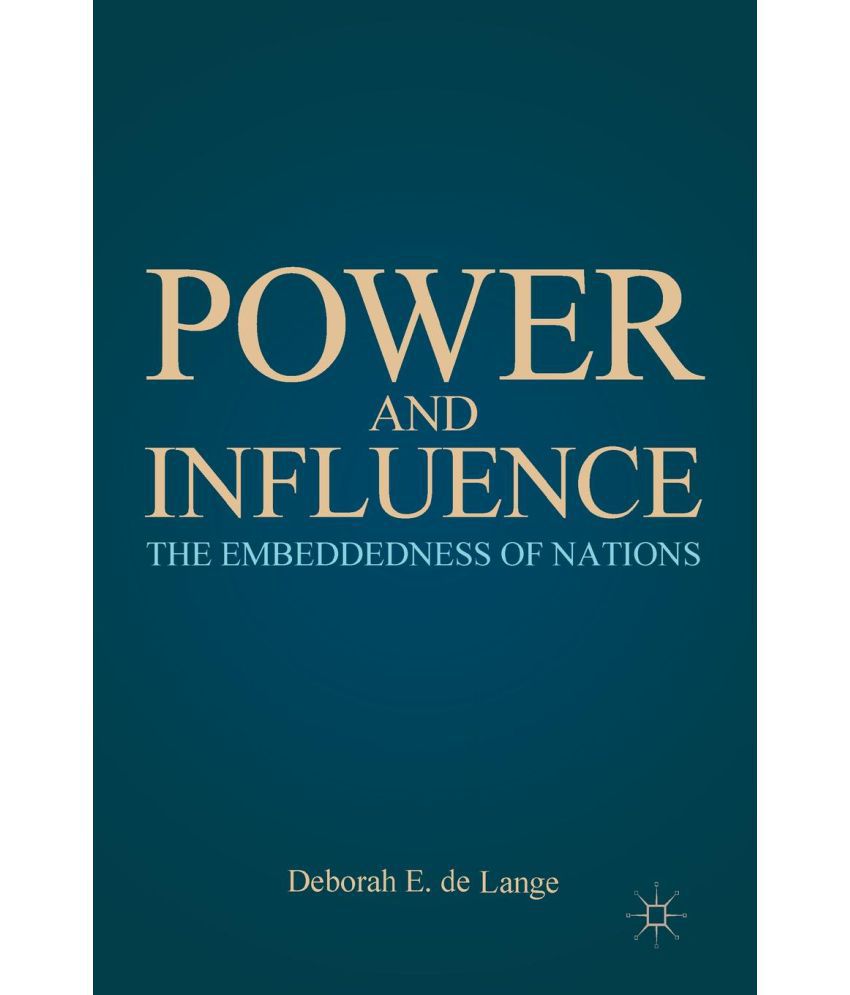Something went wrong. Please refresh the page and try again.
Something went wrong. Please refresh the page and try again.
Notifications can be turned off anytime from settings.
Item(s) Added To cart
Qty.
Something went wrong. Please refresh the page and try again.
Something went wrong. Please refresh the page and try again.
Exchange offer not applicable. New product price is lower than exchange product price
Please check the updated No Cost EMI details on the payment page
Exchange offer is not applicable with this product
Exchange Offer cannot be clubbed with Bajaj Finserv for this product
Product price & seller has been updated as per Bajaj Finserv EMI option
Please apply exchange offer again
Your item has been added to Shortlist.
View AllYour Item has been added to Shopping List
View AllSorry! Power and Influence is sold out.


You will be notified when this product will be in stock
Brief Description
"Power and Influence: The Embeddedness of Nations" is an important theoretical and empirical work in the fields of strategic management and international relations. It develops embeddedness theory in an international context by examining the external effects of trade, military alliance, diplomatic, and IGO networks on cooperative strategic decision making in the United Nations. Significant contributions are made by developing core concepts in international relations theory that have analogues in management theory. Practically, managers and policy makers face globalization in all of its facets and can discover benefits in a changing world of complex interdependence post-Cold War.
Learn More about the Book
This book investigates whether and why social structure influences cooperative organizational strategic decision making in an international relations context. It looks in particular at the United Nations General Assembly (UNGA)."
Review Quotes
1.
“De Lange builds on and contributes to the growing body of literature conceptualizing the international state system as a network of embedded actors. Her analysis of United Nations voting patterns demonstrates the potential of moving beyond dyadic similarity to a more comprehensive view of the state system in which each state is connected to its peers through multiple overlapping economic, political and social connections. In recent years, we have finally gone from knowing this is true to having the tools to analyze the state system accordingly. De Lange’s analysis offers an important and early reference point in this progression.” --Witold Henisz, Associate Professor of Management, The Wharton School of the University of Pennsylvania
2.
De Lange builds on and contributes to the growing body of literature conceptualizing the international state system as a network of embedded actors. Her analysis of United Nations voting patterns demonstrates the potential of moving beyond dyadic similarity to a more comprehensive view of the state system in which each state is connected to its peers through multiple overlapping economic, political and social connections. In recent years, we have finally gone from knowing this is true to having the tools to analyze the state system accordingly. De Lange s analysis offers an important and early reference point in this progression. --Witold Henisz, Associate Professor of Management, The Wharton School of the University of Pennsylvania"
3.
"De Lange builds on and contributes to the growing body of literature conceptualizing the international state system as a network of embedded actors. Her analysis of United Nations voting patterns demonstrates the potential of moving beyond dyadic similarity to a more comprehensive view of the state system in which each state is connected to its peers through multiple overlapping economic, political and social connections. In recent years, we have finally gone from knowing this is true to having the tools to analyze the state system accordingly. De Lange s analysis offers an important and early reference point in this progression." - Witold Henisz, Associate Professor of Management, The Wharton School of the University of Pennsylvania
4.
"De Lange builds on and contributes to the growing body of literature conceptualizing the international state system as a network of embedded actors. Her analysis of United Nations voting patterns demonstrates the potential of moving beyond dyadic similarity to a more comprehensive view of the state system in which each state is connected to its peers through multiple overlapping economic, political and social connections. In recent years, we have finally gone from knowing this is true to having the tools to analyze the state system accordingly. De Lange s analysis offers an important and early reference point in this progression." - Witold Henisz, Associate Professor of Management, The Wharton School of the University of Pennsylvania
The images represent actual product though color of the image and product may slightly differ.
Register now to get updates on promotions and
coupons. Or Download App